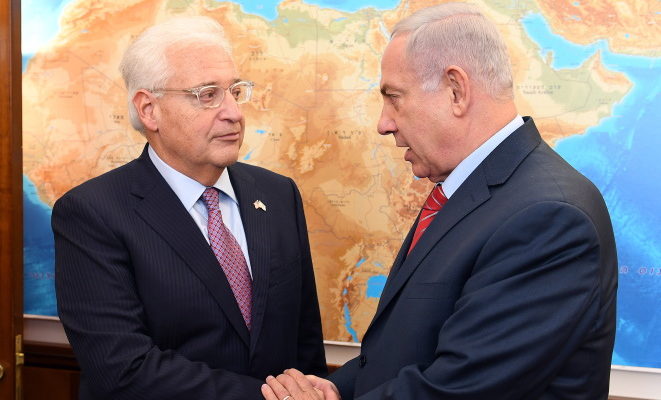The talks continue those held last week at the White House when an important breakthrough was expected but didn’t come.
By David Isaac, World Israel News
Trump’s Mideast peace team, led by Avi Berkowitz, who took over as special negotiator from Jason Greenblatt, is meeting with Israeli officials on Sunday to estimate the feasibility of proceeding with the plan to extend Israeli sovereignty over parts of Judea and Samaria and the Jordan Valley.
Joining the discussions is U.S. Ambassador to Israel David Friedman, who reportedly favors the sovereignty plan.
The talks continue those held last week at the White House when an important breakthrough was expected. But the Trump administration punted. While it didn’t quash Israel’s sovereignty hopes, it also didn’t reach a definitive conclusion.
According to Israel Hayom, the two sides will evaluate whether its possible to extend sovereignty to the maximum allowed under the Trump plan in one go or whether sovereignty should be extended piecemeal.
Israel’s N12 news site reported on Friday that Israel has already told Palestinian Authority (PA) President Mahmoud Abbas that the Jordan Valley won’t be included in the sovereignty plan. This would be a major about-face for Netanyahu, who promised before the elections that he would annex the Jordan Valley.
Netanyahu has been keeping the maps outlining what areas will become Israeli territory close to his chest. He has not discussed publicly what he intends to do. The only thing that is clear is that he is working closely with the U.S. on the plan.
The prime minister has run into opposition from several quarters regarding his plan, including the PA, EU, Israel’s Left, his own coalition partner, Blue and White, and even some settlement leaders, due to the fact that the Trump plan provides for the establishment of a Palestinian State.
However, not all settlement leaders oppose the plan, pointing out that the demands made of the PA make it all but impossible that it will agree to the conditions for receiving a state.





